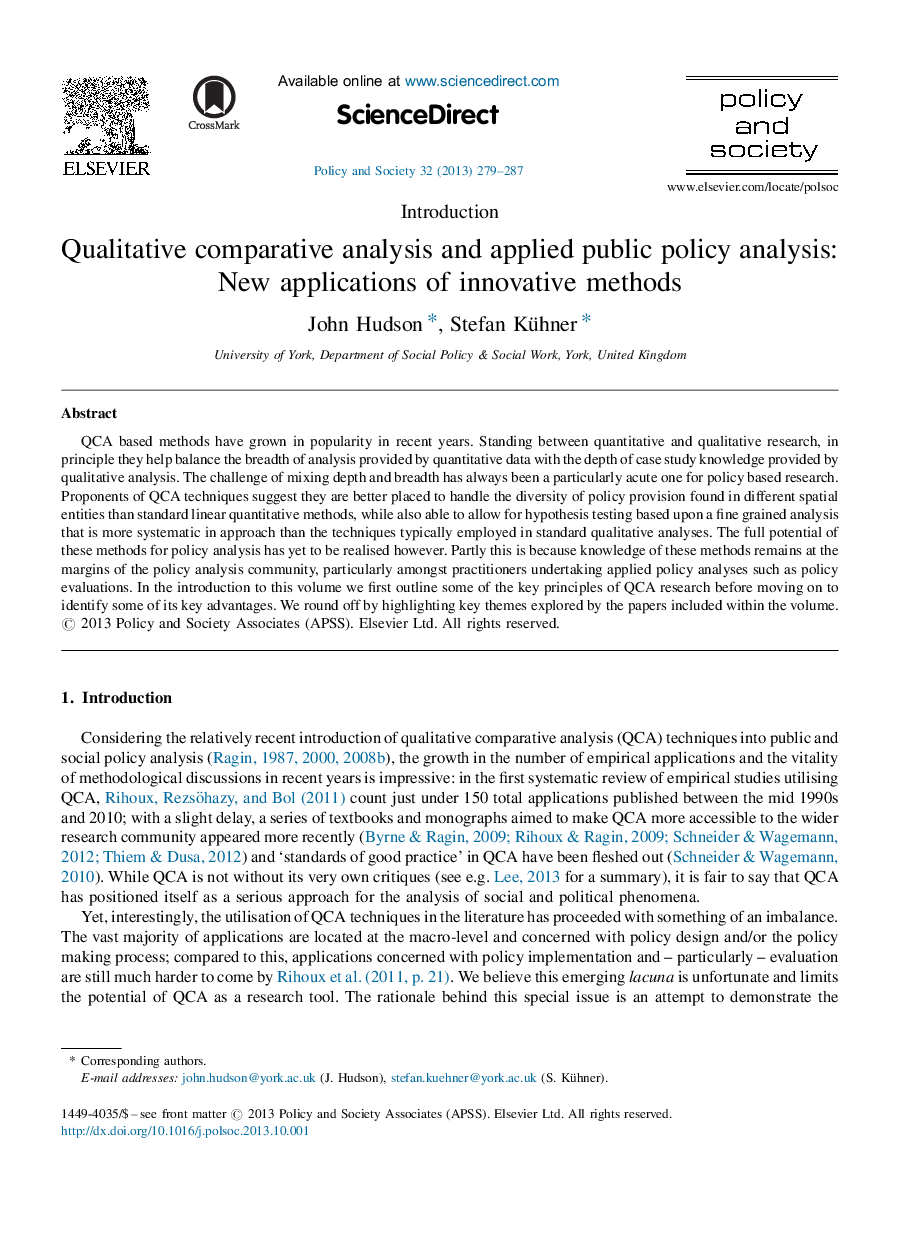| Article ID | Journal | Published Year | Pages | File Type |
|---|---|---|---|---|
| 1061602 | Policy and Society | 2013 | 9 Pages |
QCA based methods have grown in popularity in recent years. Standing between quantitative and qualitative research, in principle they help balance the breadth of analysis provided by quantitative data with the depth of case study knowledge provided by qualitative analysis. The challenge of mixing depth and breadth has always been a particularly acute one for policy based research. Proponents of QCA techniques suggest they are better placed to handle the diversity of policy provision found in different spatial entities than standard linear quantitative methods, while also able to allow for hypothesis testing based upon a fine grained analysis that is more systematic in approach than the techniques typically employed in standard qualitative analyses. The full potential of these methods for policy analysis has yet to be realised however. Partly this is because knowledge of these methods remains at the margins of the policy analysis community, particularly amongst practitioners undertaking applied policy analyses such as policy evaluations. In the introduction to this volume we first outline some of the key principles of QCA research before moving on to identify some of its key advantages. We round off by highlighting key themes explored by the papers included within the volume.
